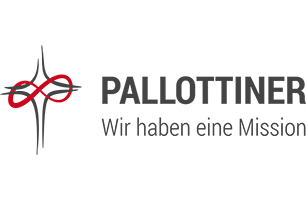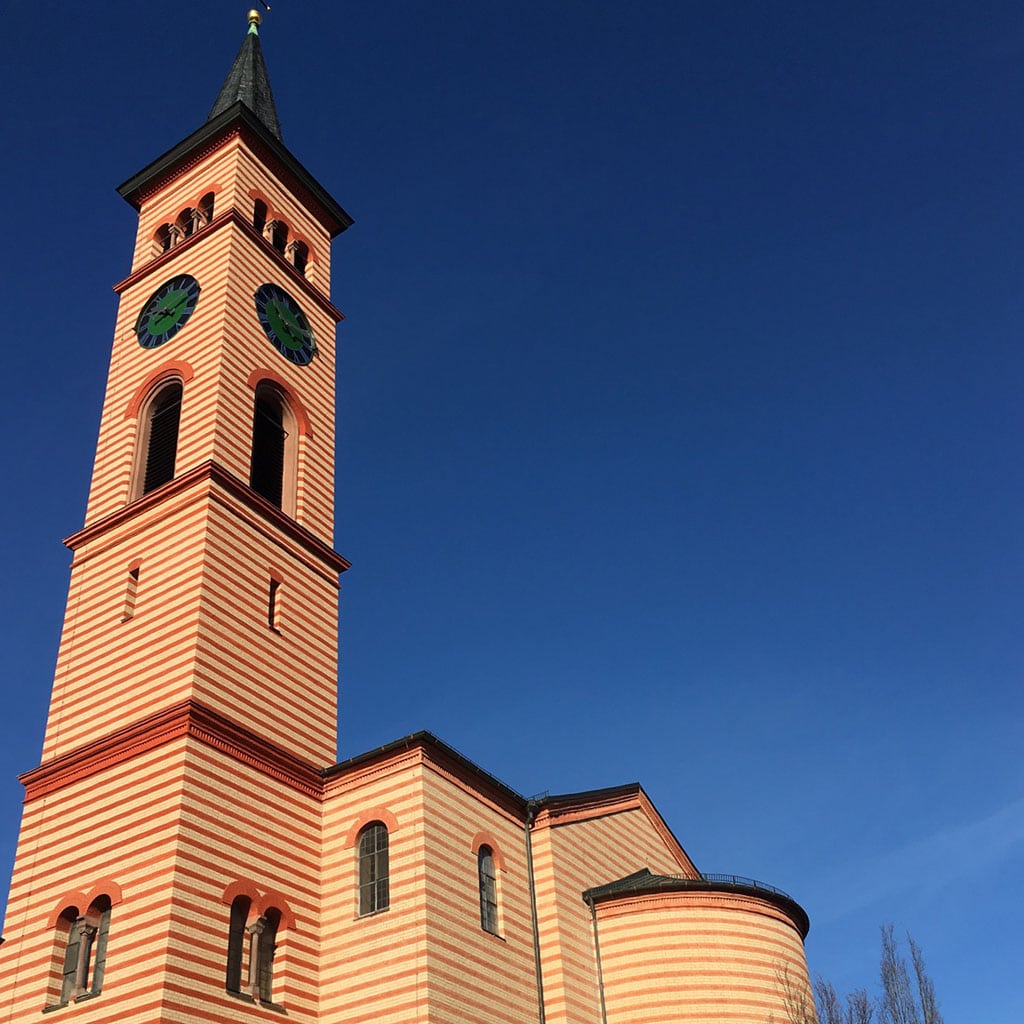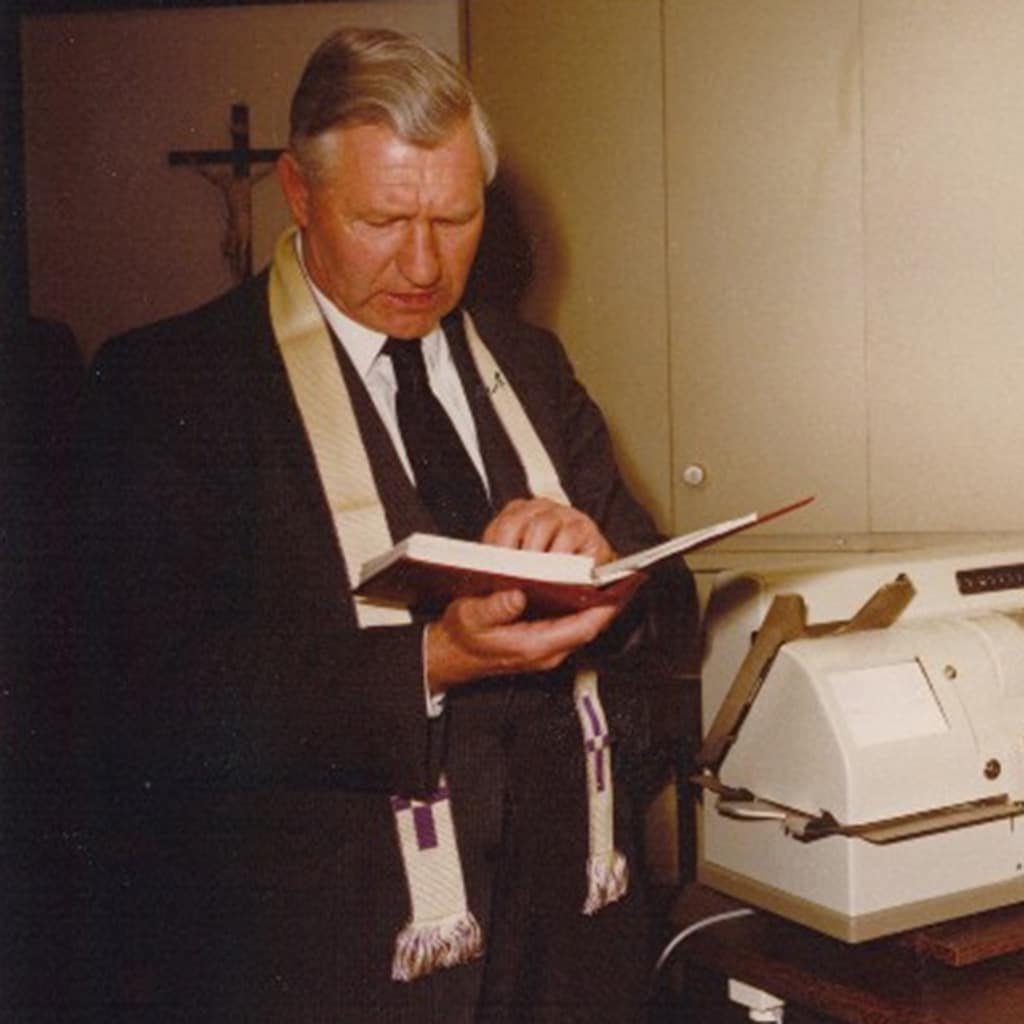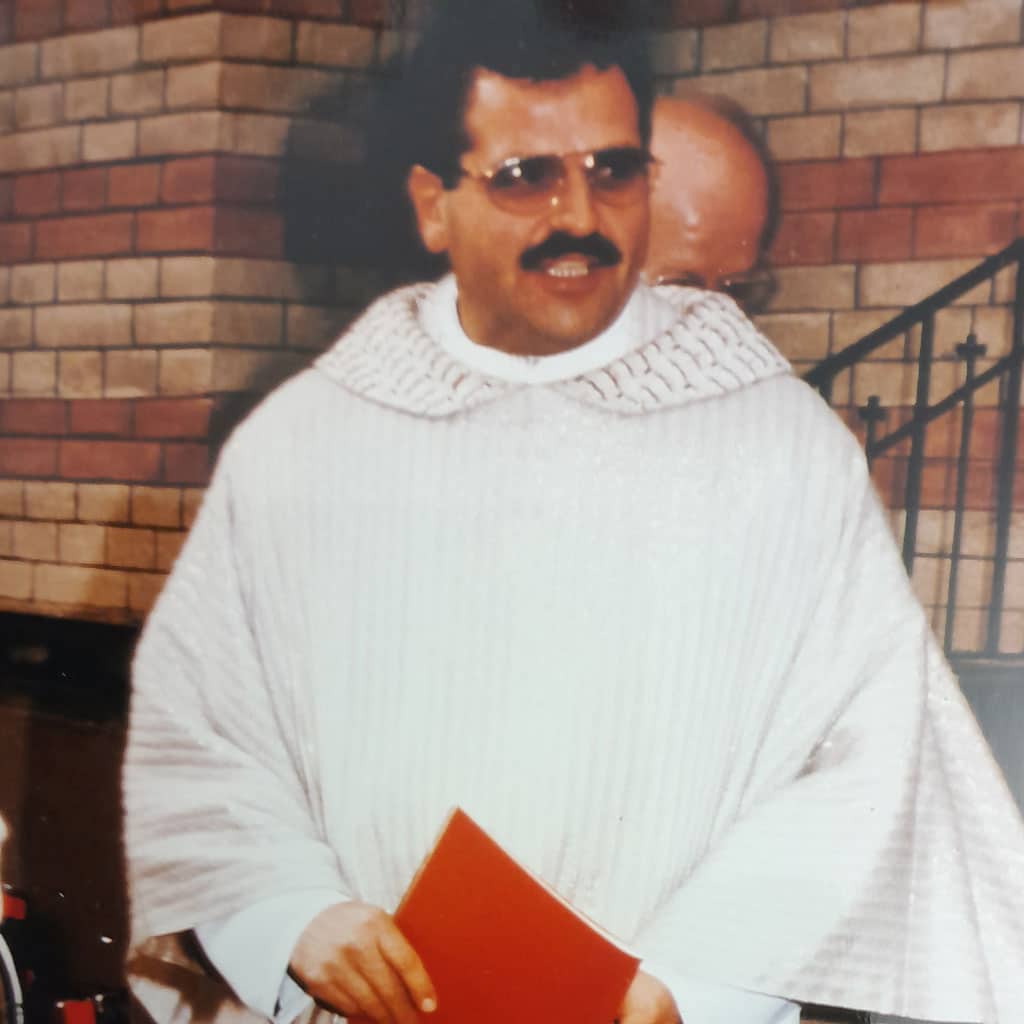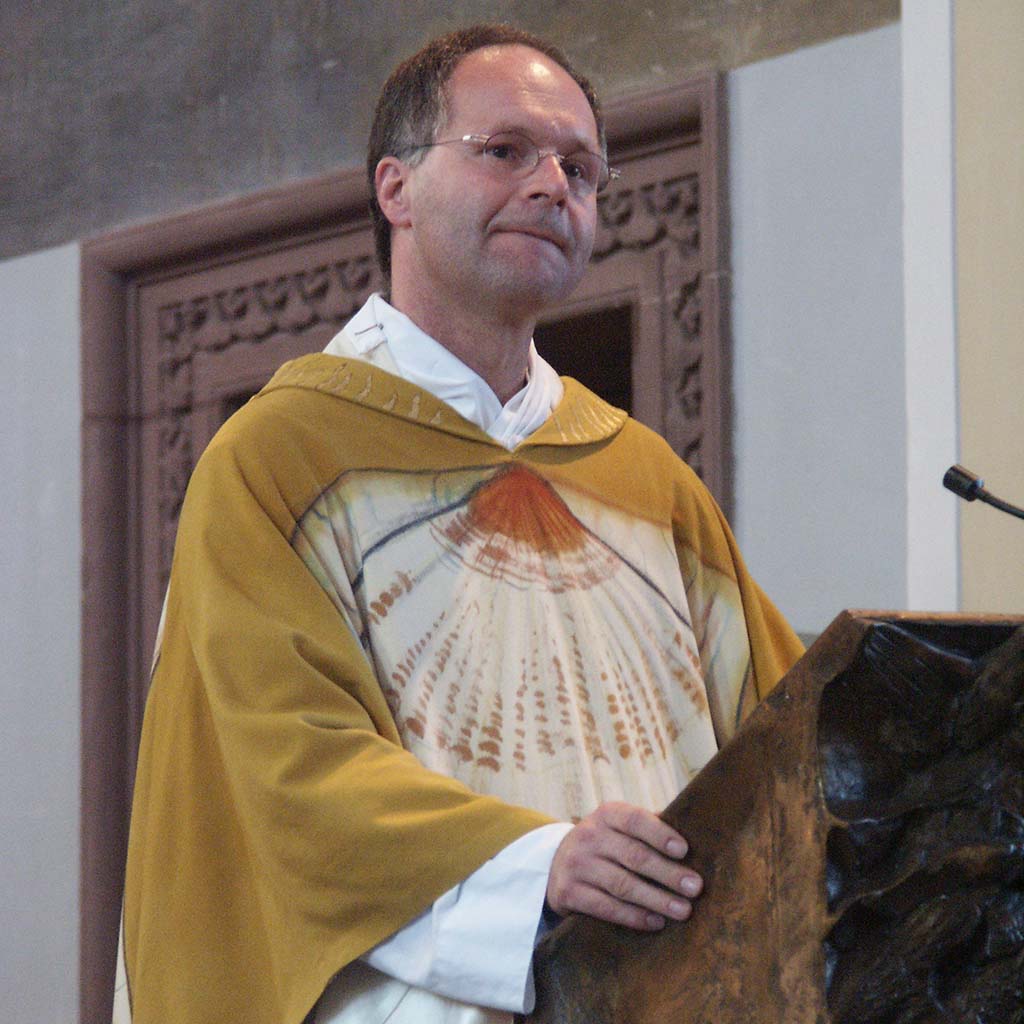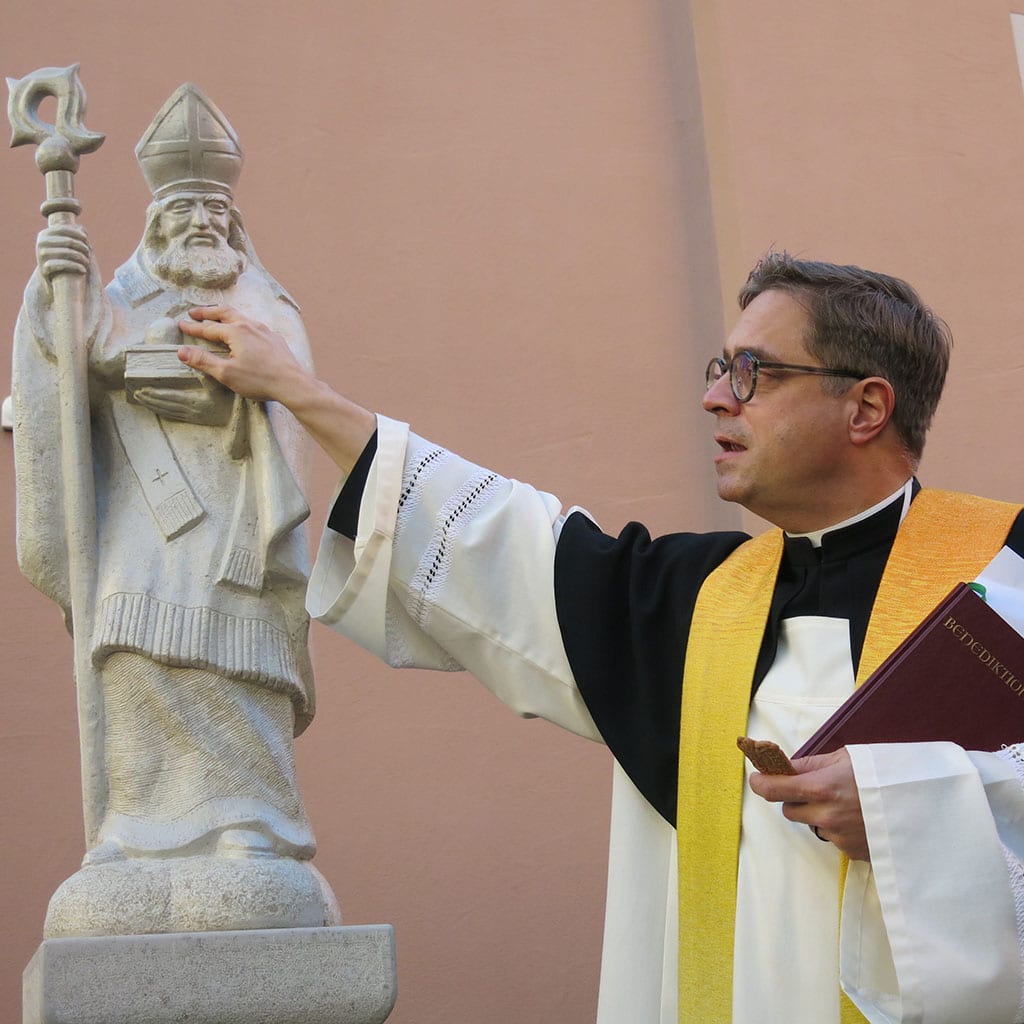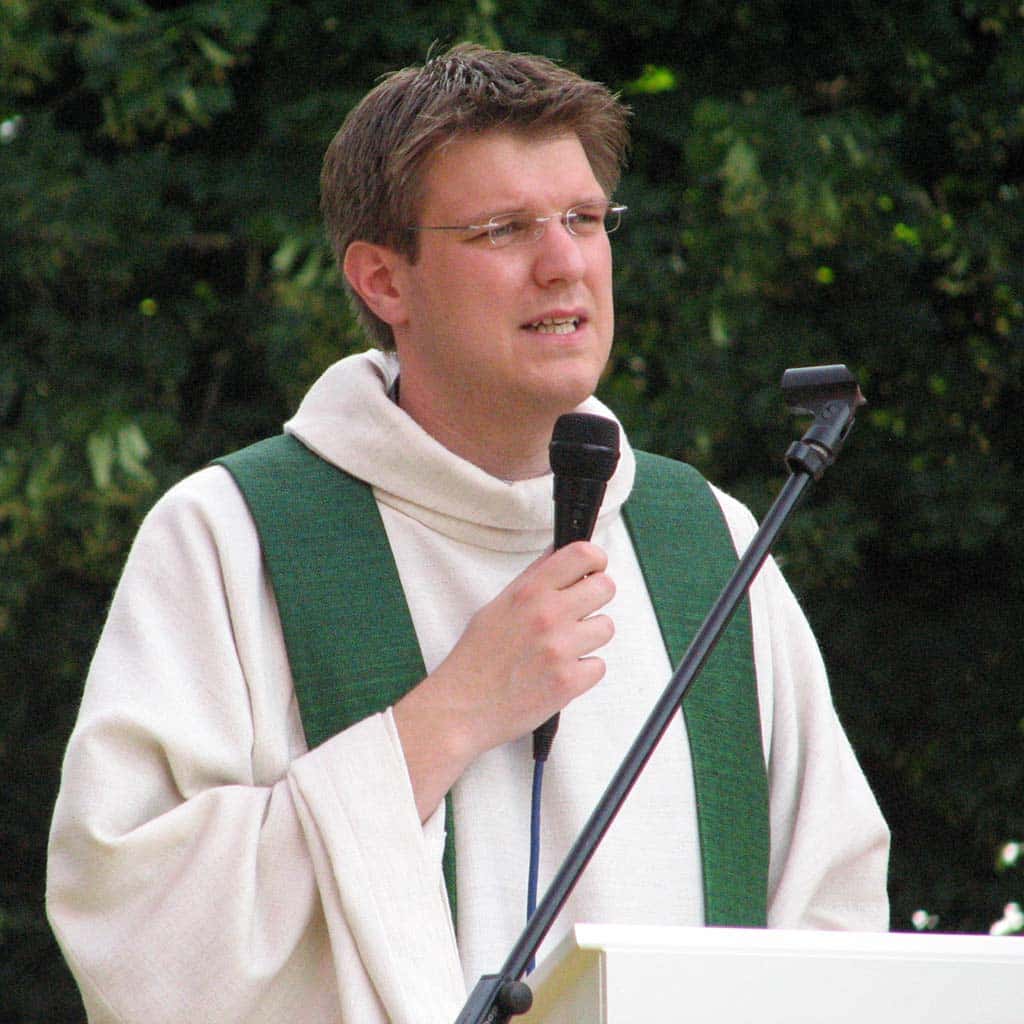"Push, encourage and let go"
The Pallottine Fathers have been running the parish of St Jakob for 50 years
It’s an anniversary: in five decades five Pallottine Fathers have worked as parish priests in St Jakob. And they have left their traces. Traces that people then and now identify as “typically Pallottine”. The parish can build on this legacy, even though times have become more turbulent.
The lineage of the Pallottine parish is easy to trace: From the “building lion” Father Heinz Wipfler, who built the parish centre and thus laid the foundations for modern pastoral care, the development continued with the progressive Father Rolf Fuchs, who knew how to take advantage of the spirit of optimism in the parish and strengthen the parish council, It continued with Father Michael Pfenning, who focused on healing and accepting pastoral care, and culminated in the opening phase of the parish with Father Markus Hau, who initiated the “Divano” lighthouse project, which opened the parish completely to the outside world and was inaugurated by his successor, Father Steffen Brühl.
The current parish priest is faced with the challenge of carrying on the spirit of Pallotti in difficult times, marked by profound ecclesial and social changes that are forcing the Church to break new ground. The fact that St Vincent Pallotti sits in the pew as a sculpture made of clay and straw could be a sign that the Congregation has a Pallottine self-image, and Father Brühl is sure that this spirit, which began in small steps 50 years ago with the doctor of theology, Father Heinz Wipfler (1974-1990), can be carried on.
When the time was right for the Pallottines
It was the time after the Council – ten years had passed – when, in 1974, the time was ripe for the Pallottines to take over the parish of their provincial seat in Friedberg. Wipfler, a pragmatist, immediately realised that there was much work to be done: The churches had to be renovated, a new rectory built and a parish centre constructed. Wipfler got everything done and involved the laity: The parish festival was introduced, visiting services were set up and communion helpers were trained.
When Father Rolf Fuchs (1990-1996) arrived in 1990, he found “a parish that was waiting to get involved,” recalls the now 75-year-old. He turned the parish council into a decision-making body, initiated processes in diaconia and liturgy, and developed a contemporary form for the social centre with Georg Fendt, who was a member of the state parliament at the time. “My role was to be a pastor and counsellor,” he says. The community should do what the community could do. It is this community orientation that Father Fuchs describes as Pallottine. However, he adds, this is not really something unusual since the Second Vatican Council.
Nevertheless, his successor, Father Michael Pfenning (1996-2008), was able to build on this community orientation. Curious about new developments, the now 64-year-old approached his task with a focus on healing and reconciliation, redesigned First Communion, organised exhibitions and had the Passion story performed in dance form. Nudging, encouraging and then letting go to allow for further development: This was the credo of Father Pfenning, who, even later as Vice-Provincial, always saw St. James as an important parish for the Pallottines, where “a lot of pastoral work was done”.
Facilitating the vocation of all Christians
During the time of Fr Markus Hau (2008-2017), the idea was born to open a café for all those in Friedberg who would like to meet and which would be open to all sections of the population: Divano – Coffee, Art & Spirit. “Expansion was a big issue at the time,” recalls Father Hau, now 50 and Provincial. Even then, the structures of the Church were beginning to disintegrate and the question arose as to how a deeper communion could be possible and how the vocation of all Christians could be made even more possible, says Father Hau.
What is the future of the Church? Father Hau’s successor, Father Steffen Brühl (2017-present), asked himself this question even more. In particular, he is faced with an increasing lack of volunteers. He says that women, in particular, can no longer afford to get involved alongside their jobs and families. Nevertheless, he relies on lay people even more than his predecessors. He believes that the parish is becoming less dependent on the priest. When a mass is cancelled, he says, people hold a liturgy of the word.
Seeing from the outside what’s going on inside
For him, the Divano, which opened during his tenure and was planned during his time as chaplain to Father Hau, is a sign of the Church’s mission: Father Brühl is convinced that a parish must take on social responsibility at a time when milieus are drifting apart. The 48-year-old says that the Church must become transparent and go to the people. This is also reflected in the architecture of the building. The parish centre was originally a closed building with windows at the back. “But people should be able to see from the outside that something is going on inside,” explains Father Brühl. That’s why the wall was torn down and large windows were installed.
Father Steffen Brühl sees the challenges of our time as follows: “The fragmentation of society, loneliness, impoverishment and the danger of radicalisation. “As a parish, we have to act as a cement,” says the priest. His vision for the parish of the future is that the Pallottine spirit continues to work, that the parish is “supported by the people who live and believe here”.
Pallotti Mass
The parish celebrates the anniversary “St. Jakob – 50 years of Pallottine parish” with a festive Mass on the feast day of St. Vincent Pallotti on 21 January at 18:00. The main celebrant and homilist will be Provincial Fr Markus Hau. The church choir and the Collegium Musicum under the direction of Monika Trinkl-Peters will perform parts of the Missa Sonora by Rainer Waldmann and various hymns.
The Pallottine Fathers of St. James:
P. Dr Heinz Wipfler 1974 – 1990
P. Rolf Fuchs 1990 – 1996
P. Michael Pfenning 1996 – 2008
P. Markus Hau 2008 – 2017
P. Steffen Brühl 2017 – today
Contribution: Alexander Schweda
Pictures: Pallottines
Link to St James Parish – Typically Pallottine
Share this article…
Recommended
